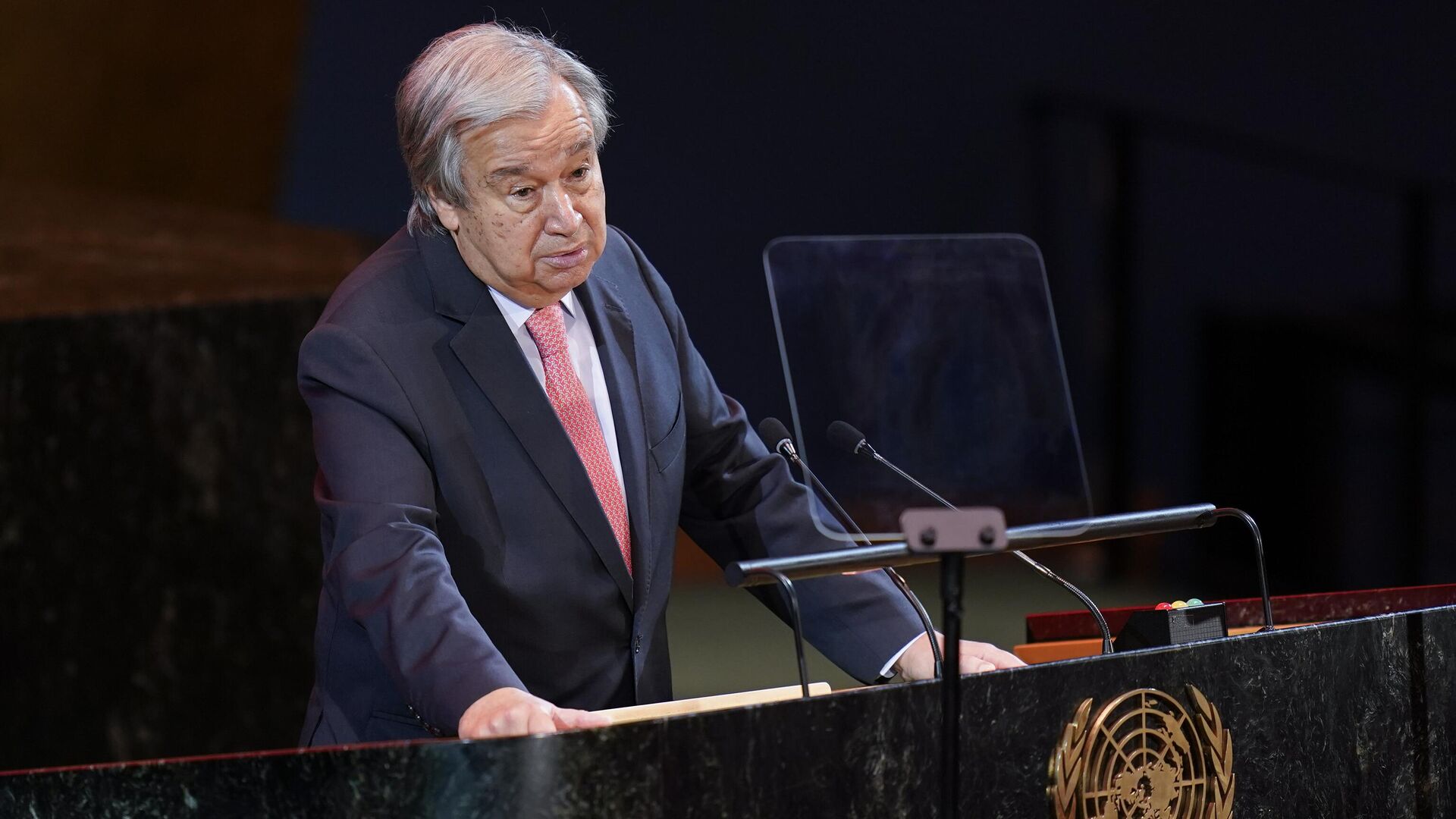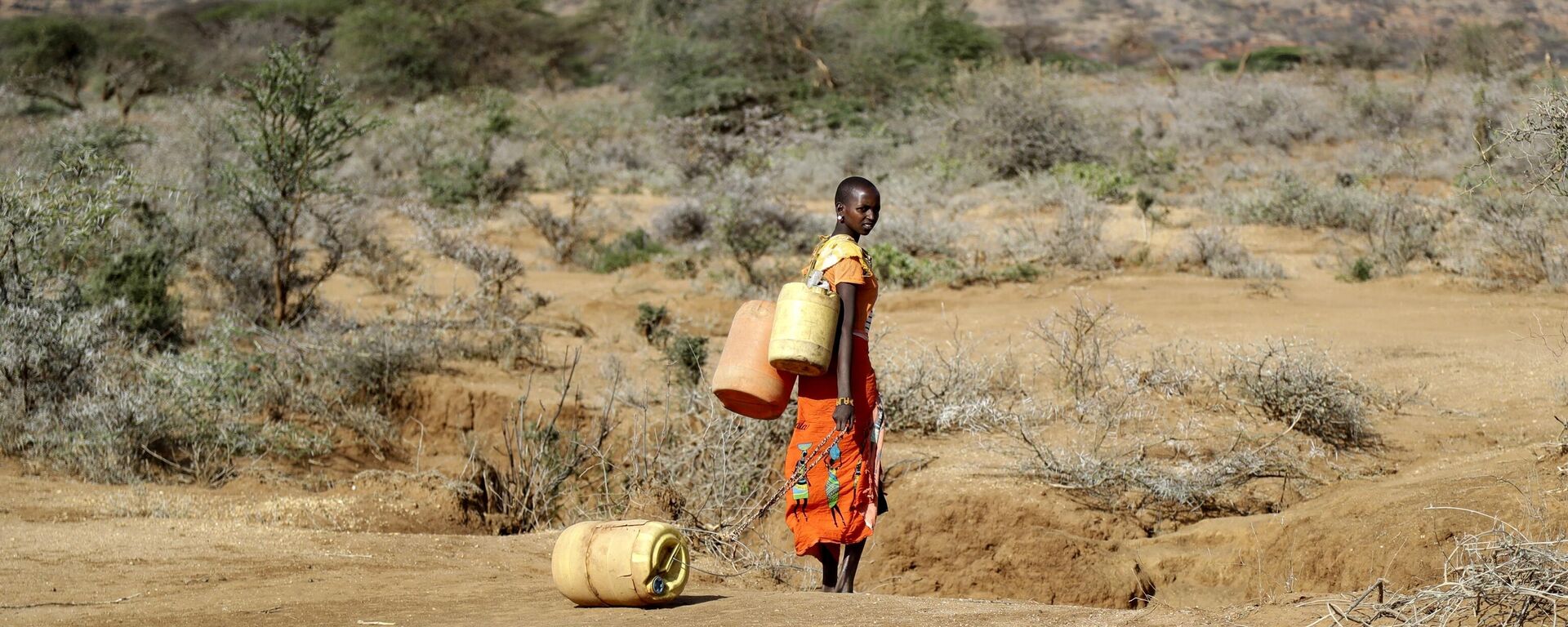https://en.sputniknews.africa/20230502/uns-guterres-unveils-key-takeouts-from-acceleration-agenda-climate-pact-1058988775.html
UN's Guterres Unveils Key Takeouts From Acceleration Agenda Climate Pact
UN's Guterres Unveils Key Takeouts From Acceleration Agenda Climate Pact
Sputnik Africa
Antonio Guterres unveiled the key takeouts from the Acceleration Agenda climate pact by, among others, calling on the global community for cutting emissions, supporting emerging economies in addressing climate change issues.
2023-05-02T14:28+0200
2023-05-02T14:28+0200
2023-05-02T14:28+0200
united nations (un)
antonio guterres
climate
climate change
germany
https://cdn1.img.sputniknews.africa/img/07e7/05/02/1058988416_0:0:3072:1728_1920x0_80_0_0_03dc01a587980062bcc12d97a4cbdd42.jpg
In a video address to the Petersberg Climate Dialogue, the UN top official also called on governments for ceasing the expansion of coal, oil and gas sectors, speeding up decarbonization and providing electricity access for all.The document also suggests that the developed countries commit to reaching net zero as close as possible to 2040, and emerging economies - to 2050, by pooling their resources, scientific capacities and technologies, the UN's chief said. Additionally, the climate pact calls for expediting the decarbonization of major sectors – "from shipping, aviation, and steel, to cement, aluminum, and agriculture – working with the private sector," the secretary-general added. The document has urged the developed countries to deliver the $100 billion this year to replenish the Green Climate Fund, according to Guterres. The UN's head has warned of 10% rise in global emissions by 2030 from 2010 levels, suggesting, firstly, among others, to introduce "climate justice" when developed countries and international financial institutions deliver on long-overdue finance, and secondly, cleaning-up the economies by "breaking our fossil fuel addiction, and driving decarbonization in every sector." In April, the World Meteorological Organization (WMO) said that the concentration of the three main greenhouse gases – methane, carbon dioxide and nitrous oxide – hit record observed highs two years ago, the latest year for which consolidated global values are available (1984-2021). The annual increase in methane concentration from 2020-2021 was the highest ever recorded, and that real-time data from specific locations had indicated a continuous increase in levels of the greenhouse gases in 2022, it added.
https://en.sputniknews.africa/20230428/climate-change-made-exceptional-drought-in-horn-of-africa-even-worse-study-reveals--1058908168.html
germany
Sputnik Africa
feedback@sputniknews.com
+74956456601
MIA „Rossiya Segodnya“
2023
Sputnik Africa
feedback@sputniknews.com
+74956456601
MIA „Rossiya Segodnya“
News
en_EN
Sputnik Africa
feedback@sputniknews.com
+74956456601
MIA „Rossiya Segodnya“
Sputnik Africa
feedback@sputniknews.com
+74956456601
MIA „Rossiya Segodnya“
climate change, un agenda, un climate change, climate, antonio guterres, acceleration agenda climate pact, cutting emissions, supporting emerging economies, addressing climate change, un secretary general, petersberg climate dialogue, germany,
climate change, un agenda, un climate change, climate, antonio guterres, acceleration agenda climate pact, cutting emissions, supporting emerging economies, addressing climate change, un secretary general, petersberg climate dialogue, germany,
UN's Guterres Unveils Key Takeouts From Acceleration Agenda Climate Pact
MOSCOW (Sputnik) - UN Secretary-General Antonio Guterres on Tuesday unveiled the key takeouts from the Acceleration Agenda climate pact by, among others, calling on the global community for cutting emissions, supporting emerging economies in addressing climate change issues.
In a video address to the Petersberg Climate Dialogue, the UN top official also called on governments for ceasing the expansion of coal, oil and gas sectors, speeding up decarbonization and providing electricity access for all.
"I have proposed to the G20 a Climate Solidarity Pact – in which all big emitters make extra efforts to cut emissions, and wealthier countries support emerging economies to be able to do so. And last month, I presented a plan to super-charge efforts to achieve this through the Acceleration Agenda. This proposes that all countries hit fast-forward on their net zero deadlines," Guterres said.
The document also suggests that the
developed countries commit to reaching net zero as close as possible to 2040, and emerging economies - to 2050, by pooling their resources, scientific capacities and technologies, the UN's chief said.
"It asks them to phaseout coal by 2030 in OECD countries and 2040 in all others. To make electricity generation net-zero by 2035 in developing countries and 2040 in all others, while providing access to electricity for all. To stop permitting, funding, and expanding coal, oil and gas," Guterres also said.
Additionally, the climate pact calls for expediting the decarbonization of major sectors – "from shipping, aviation, and steel, to cement, aluminum, and agriculture – working with the private sector," the secretary-general added.
"The Acceleration Agenda also calls for an overhaul of the priorities and the business models of multilateral development banks, so the trillions of dollars in private finance, which have long been talked about, finally flow to the green economy," he noted.
The document has urged the developed countries to
deliver the $100 billion this year to replenish the Green Climate Fund, according to Guterres.
The UN's head has warned of 10% rise in global emissions by 2030 from 2010 levels, suggesting, firstly, among others, to introduce "climate justice" when developed countries and international financial institutions deliver on long-overdue finance, and secondly, cleaning-up the economies by "breaking our fossil fuel addiction, and driving decarbonization in every sector."
"We know that the 1.5 degree limit requires halving global emissions by 2030. Yet they are on course to rise 10 percent by then, compared to 2010," Guterres added.
In April, the World Meteorological Organization (WMO) said that the concentration of the three main greenhouse gases – methane, carbon dioxide and nitrous oxide – hit
record observed highs two years ago, the latest year for which consolidated global values are available (1984-2021).
The annual increase in methane concentration from 2020-2021 was the highest ever recorded, and that real-time data from specific locations had indicated a continuous increase in levels of the greenhouse gases in 2022, it added.


